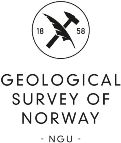

|
Norsk versjon | ||||
| THE INDUSTRIAL MINERAL DATABASE | |||||
| Deposit Area 127 - 301 | |||||
| (Last updated 15.nov.2024) | |||||
Name of Deposit Area : Melsom |
| (Object Id : 0127,301,00,00) |
| Location |
| County : | Østfold (01) | Municipality : | Skiptvet (0127) |
| Map 1:50000: | Askim (1914-2) | Map 1:250000: | Oslo |
| Marking point: | Longitude: | 11.1060470 | Latitude: | 59.5303110 |
| EU89-UTM Zone 32 | (Coordinates NOT confirmed) |
| X-coord: | 619118 m. | Y-coord: | 6600992 m. |
|
|
| Commodity |
| Main Type: | Feldspar | Sub Type: | Pegmatitic feldspar |
| Importance |
| Public: | Not Assessed (reg. 18.02.2015) |
| Economical: | Not classified/evaluated |
Products |
| Element/product | Crude ore grade or quality | |
| PEGFEL | % |
Mineralization |
| Era: | Period: | |||
| Dating: | Method: | |||
| Genesis: | Form: | |||
| Main texture: | Min. distribution: |
| Main grain size: |
| Strike/Dip: | Direction: | |||
| Plunge: |
| Stratigraphic classification of host rock |
| Era: | Period: |
| Province: | ||
| Geotec.unit: | ||
| Tectonic complex: | ||
| Igneous complex: |
| Group: | Formation: |
Information(s) in free text format |
| Free text |
| Det er mulig denne er det Rekstad (1921) omtaler som ved "Søndre Solberg" |
| Location |
| Ved befaring må det avgjøres om lokaliteten er korrekt plassert eller om den f.eks. bør flyttes til UTM sone 33 280030ø 6605336N. |
Bibliography: |
| From NGU's Reference Archive: |
| Rekstad, J. , 1921 |
| Eidsberg. De geologiske forhold innen rektangelkartet Eidsbergs område |
| ;Norges geologiske undersøkelse;KARTBESKRIVELSE; BOK;NGU; No.88;76 pages |
| Abstract: | |
| The territory is situated in south-eastern Norway to the east of the Oslofjord. It is an inland district which at no place reaches the sea. Glomma is the chief river which runs through the country in a southerly direction. The rocks occurring here are gneiss, granite, gabbro and schistose amphibolite, all of them of Archean age. Gneiss occupies a large area of the region. The rock has a varied appearance. Partly it is rich in mica (mica gneiss), partly it contains hornblende (hornblende-gneiss), partly it is coarse-grained and of granitoid texture. This latter form embraces also granite which has been deformed by powerful mechanical forces. This granite is intermixed with the gneiss in such a way as to make it impossible to separate them on the map. For the most part there is no distinctive demarcation between them, but the one passes into the other. The gneiss is mostly stratified, with well defined strike and dip. The granite intermixed is younger than the gneiss, but it belongs to the oldest known granites of Scandinavia. The gneiss is for the most part of igneous origin. Gabbro and amphibolite occur as numerous lenses injected into the gneiss. Connected with the gabbro here occurs nickelferous pyrrhotite. The greatest of these occurrences is at Romsås. |
| Horvath, A. , 1941 |
| Bericht über die Befahrung der Glimmerbrüche in Halden und in Skiptvedtdistrikt |
| ;Norges geologiske undersøkelse;RAPPORT;Bergarkivet; No.BA 5601;4 pages |
| Abstract: | |
| Forekomster nevnt i rapporten: Snehytta, Stormfeld, Fjell (Halden-distriktet), Vesterengen, Skogstangen, Borge (Skiptvet) |
| The fact sheet was created on 07.01.2026 |
| Questions or comments regarding the fact sheet can be emailed to: ressursdatabaser@ngu.no |
| Copyright © 2026 Geological Survey of Norway |